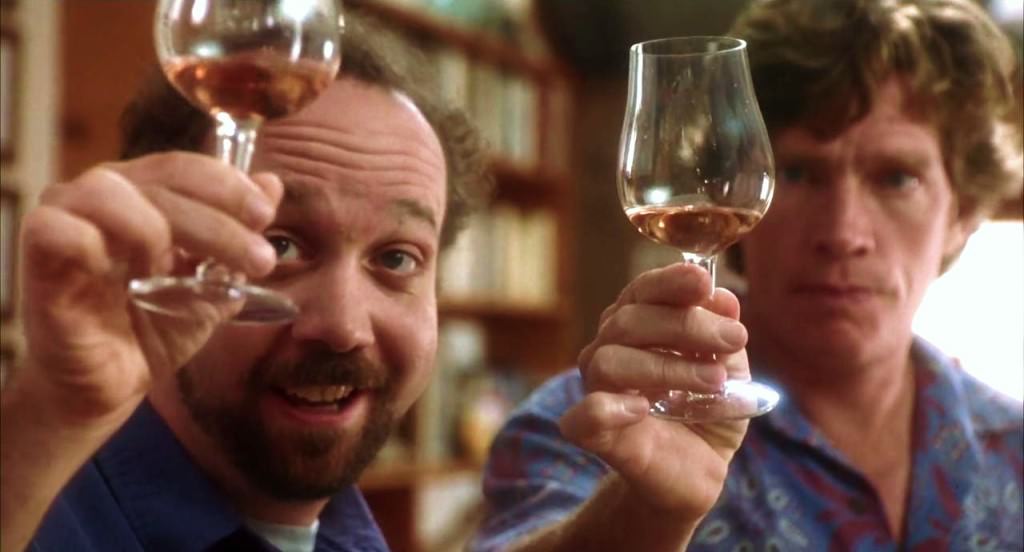The Sideways Story: ‘I fell in love with Pinot Noir’
Rex Pickett is the award-winning author of Sideways, the 2004 film that every wine buff has seen at least once; the film that toppled Merlot from its spot of #1 grape loved by Americans, and made Pinot Noir the new go-to wine of choice. As sales of Merlot wines dipped and those of Pinot soared, studies were done, debates commenced and the Merlot-loving American public scrambled to change allegiances. Was Miles right about Pinot Noir, the grape he called ‘haunting and brilliant and thrilling and subtle’?
Pickett’s road story of two best friends on a wine journey in Santa Ynez went on to win an Oscar and innumerable other awards, and spawned a sequel, Vertical.
On Twitter, I’ve been following @RexPickett’s recent work – he is busy with Sideways:The Play and the third book of the series, which finds Miles and Jack in Chile, is due out shortly. I decided to catch up with the writer’s news, views and latest activities with a few questions, which he answered with his characteristic forthrightness.
Sideways changed the way America viewed Merlot and Pinot Noir. I have often wondered why you featured those two grape varieties in particular. Did you in any way foresee the historical pro-Pinot anti-Merlot wave that followed?
The answer to the latter question is no, of course not. I wrote a novel that I hoped got published. I had no idea it was going to be a movie. I did not do the adaptation. I had no idea what the writers were going to include and exclude. And I had no idea, once it was a film, that it would have that kind of seismic effect on the wine world.
Regarding Pinot Noir and Merlot: I fell in love with Pinot Noir. I think, as a red grape variety, it’s something entirely different than all the other red grape varieties. I love the aura of mystery that oenophiles seem to cloak it in, I love how it can produce rapturous and rhapsodic orations and prose. I love that it’s a difficult and fickle grape. Merlot is the opposite: approachable, rounder, less complex usually, easy-going. By the time I wrote the novel in ’99, Merlot had become an inside joke in the wine industry. Yes, there are great Merlots — Petrus, for example — but by ’99 it was nearly 20% of the red wine market in the U.S. It needed a correction. And, unwittingly, Sideways gave it to the Merlot producers. They earned it by over-cropping it, mechanize farming it and turning a once noble grape into a flabby, flavourless, characterless glass of swill.
So, from a literary standpoint, I look for conflict. In ’99 there was no greater conflict in the wine world than that between Pinot and Merlot. If you were in to the former you were hip, a wine geek. If you were in to the latter you were a Philistine and a wine moron. In ’99. Not anymore. I didn’t set up this conflict consciously, it’s just how it was. I loved Pinot, I thought it was a grape with the complexity of a great novel, and I thought Merlot had all the depth of a billabong.
Sideways became more than a road tale. As a film, it became the cult movie on wine for all wine lovers. They say there are autobiographical elements in it – to what extent? How happy or unhappy were you with what Alexander Payne and Paul Giametti did with the character Miles on celluloid?
I am extremely happy with Alexander Payne’s and Jim Taylor’s adaptation. They were incredibly faithful to my novel. In the film business, a novel like Sideways could have been two guys doing Jello shots in Cabo san Lucas; or in Bollywood, two guys guzzling Kingfishers in Punjabi. Once you sell your novel, you have no control over what happens to it. Though Giamatti bears no resemblance to me, he was the perfect Miles. As for whether the movie is autobiographical: it was written in the first person from the standpoint of Miles. I draw a lot from things in my life. There are many autobiographical elements in the novel/movie, but it is fiction. I draw on myself and others more for emotional states of mind and to paint a picture of their inner lives than I do to mine actual events. In that sense, it’s very autobiographical, I suppose.
Why did you choose the setting in Santa Ynez. Again, how autobiographical a choice is that?
I started going up to the Santa Ynez Valley in the early ’90s to get away from the disaster that was my life. I know the area very well. As a writer we’re always drawing from our lives — or at least I do in my work. I loved how it was unknown, unpopulated, not touristy at all. I loved that it was an inexpensive vacation, wine tasting was (then!) free. Very autobiographical.
Sideways has won innumerable awards, from Critic’s Choice awards to an Oscar. How did it affect the way you planned your sequels, if at all? Any pressures after this success vis-a-vis your writing ?
It didn’t affect anything. I write what I want to write. Pressure is when you are in debt, process servers are knocking at your door, and you’re still writing. Success maybe causes pressure in some, but for me it was liberating. Everyone hated Sideways when my agent went out with it. The publishing industry loathed it — over 100 rejection letters in three separate rounds of submissions. And Hollywood hated it as an unpublished book. It took a year before it got to Alexander Payne. Obviously, he didn’t hate it. Obviously, everyone else was wrong, if you measure success by all the awards it won — especially the Best Adaptation ones. As a result, when I write I don’t fear anyone or anything anymore. (more…)



